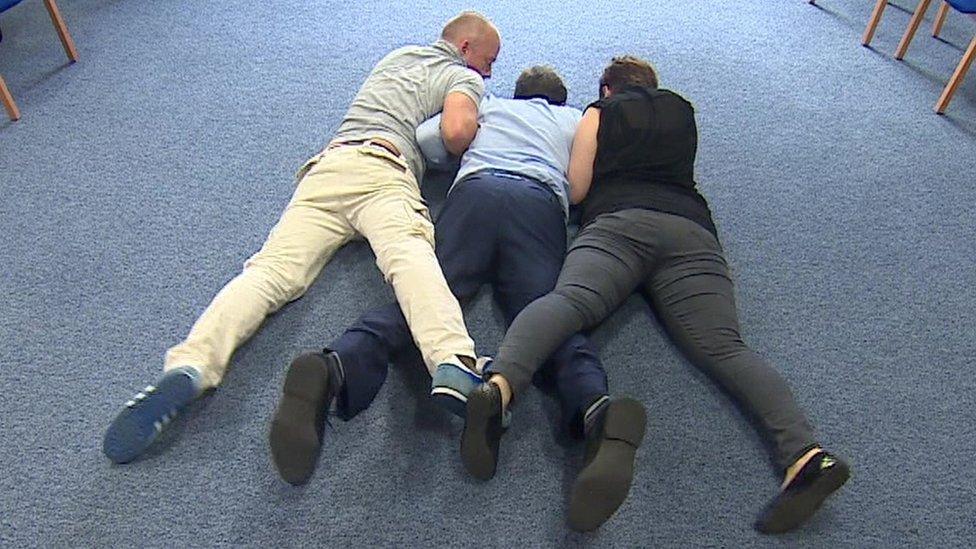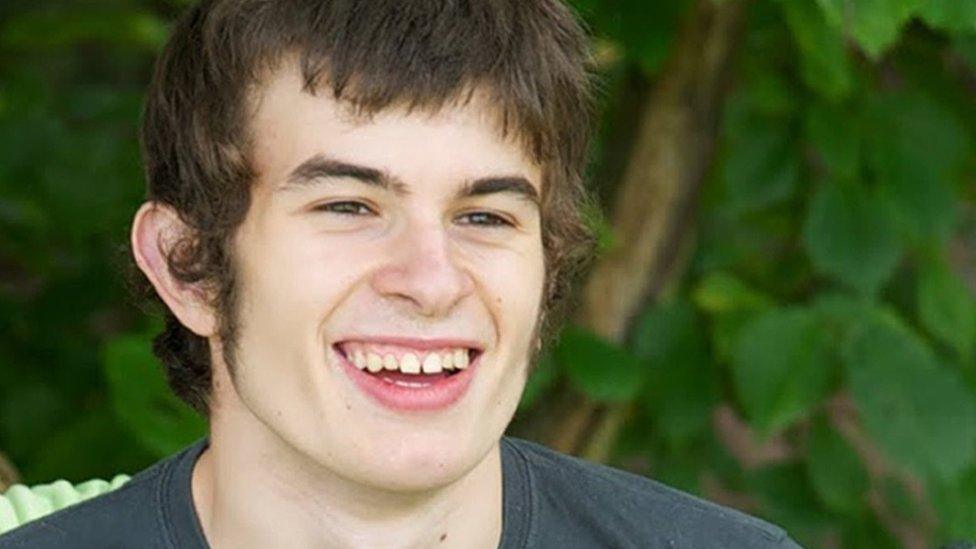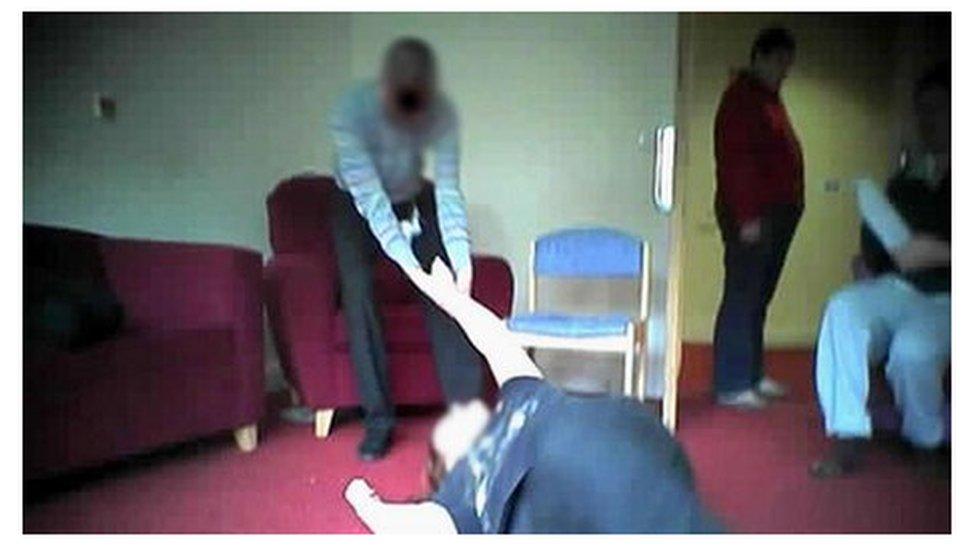'Shameful' use of restraints on disabled patients
- Published

Face-down restraint can restrict people's breathing
The use of restraints on adults with learning disabilities in hospital units in England rose by 50% between 2016 and 2017, figures show.
In 2017, restraints were used more than 22,000 times - once every half an hour. This was up from 15,000 times in 2016.
Former Social Care Minister Norman Lamb said the use of restraint was "shameful".
The Department of Health said it was committed to reducing the use of restrictive force in hospitals.
'Absolutely shocking'
The data, which covers both adults and children, obtained from NHS digital by BBC Radio 4's File on 4 programme also found:
Patient on patient assaults rose from 3,600 to more than 9,000 over the same period and figures for January to May this year suggest they are continuing to rise
Instances of face-down or prone restraint - which should no longer be used according to government guidelines - also increased from more than 2,200 to 3,100
Authorities in Wales, Scotland and Northern Ireland said it was not possible for them to provide fully comparative data.
Liberal Democrat MP Norman Lamb, who introduced guidelines to reduce the use of force in hospitals in 2014, said the use of face-down restraint was "absolutely shocking" and "extraordinarily demeaning".
"The bottom line is that I had wanted to see and expected to see a substantial decline in the use of restraint and that hasn't happened.
"I think that's really shameful when we know that it's possible in very many cases to avoid the use of restraint at all through a more sophisticated approach to people in inpatient settings."
'Entirely unacceptable'
Viv Cooper, of the Challenging Behaviour Foundation, a charity which supports people with severe learning disabilities, said: "We're putting people in situations that are causing them distress and that are damaging them - and that's entirely unacceptable."
The increases happened over a period when the government said the overall number of people with learning disabilities in inpatient beds was falling.
But the BBC investigation also found the government's pledge to move between 35% and 50% of people with learning disabilities and autism out of hospitals and into the community by March 2019 was unlikely to be met.
Latest figures show the number of adults in inpatient units has reduced from about 2,600 to about 2,400 but the number of children in such units has almost doubled.
Rob Greig, former national director for Learning Disabilities, said of the government's Transforming Care programme: "All that happened was that one person moved out and somebody else was ready to move in, because someone else had been let down by the community services not supporting them properly."
But a Department of Health and Social Care official said since 2015 there had been about 5,500 discharges into the community and more than 410 inpatient beds decommissioned.
The official added: "People with learning disabilities and autism deserve the best support and care.
"We are clear that any kind of restraint should only be used as a last resort and we are working to reduce restrictive interventions and improve patient safety through improved monitoring and training."
The Local Government Association, which represents councils, said it was working towards getting people the services they needed in the community but adult social care services faced a £3.5bn funding gap by 2025.
A representative said: "For people to receive effective and safe support, social care needs to be financially sustainable."
Transforming Care - Is it Working? will be on BBC Radio 4 at 20:00 on 2 October.
- Published4 May 2018

- Published22 February 2016
